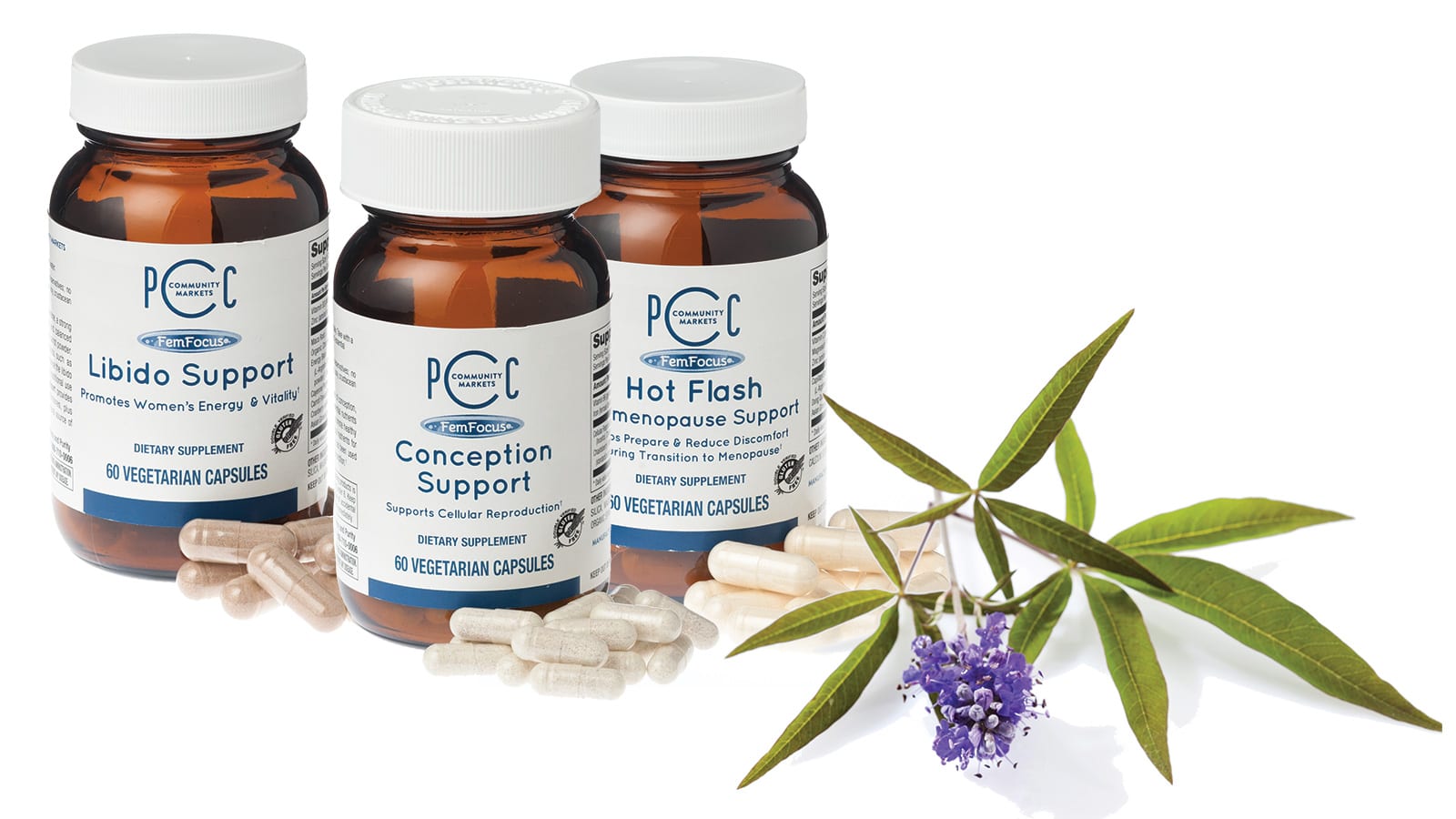In the stores
This article was originally published in March 2018

Supplements for women
All PCC brand vitamins and supplements are 25 percent off this month! Some of our vitamins and supplements are specially designed to support women’s health.
Conception support
The most common fertility complications that women face stem from ovulatory issues. Lifestyle factors, such as smoking and trans-fat consumption, appear to have the most significant impact on ovulation infertility, but there are several studies showing positive results on ovulation and conception due to nutrients. This vitamin mix contains vitamin B6, inositol, choline and chaste berry, nutrients designed to balance estrogen and support egg fertility. Pilot studies also find that inositol increases the likelihood of fertility and carrying a pregnancy to term.*
Libido support
Hormonal imbalances due to menopause can cause many women to experience a lack of sexual desire and arousal. This combination of vitamins, minerals and botanicals – including maca, organic chocolate and organic pumpkin seed – provides a broad-spectrum approach to promote hormone balance, improve circulation, and boost energy levels and libido.*
Hot flash perimenopause support
More than 80 percent of women will experience hot flashes and night sweats during menopause. These are vasomotor symptoms that come from the rapid dilation and constriction of blood vessels. Certain nutrients can improve capillary elasticity and nitrogen monoxide balance to support the body in quickly resolving sudden large volumes of blood flow. This vitamin mix includes arginine and citrulline malate for nitrogen balance and circulation improvement, and ginseng to assist with mood swings and irritability.*
Menopause formula
This formula is designed to help maintain hormonal balance during the physical changes associated with menopause. This mix contains a blend of Chinese herbs particularly effective in providing menopause support, including red clover, dong quai and black cohosh.*
Supplements to support PMS
Botanicals and nutritional supplements have improved the symptoms of premenstrual syndrome (PMS) for many women. Though you will find a variety of options at PCC, here are a few suggestions.
Vitamin B6 and Magnesium
B6 is often found in supplemental formulas for reducing PMS symptoms, especially anxiety. A recent study showed B6 and magnesium reduced PMS more effectively in combination than alone. From Brandy, HBC Coordinator at Columbia City PCC: “I suggest magnesium powders for cramping associated with menstruation. Just add water and drink up. For me, the relief is almost instantaneous.”*
Gamma-linolenic acid (GLA)
This essential fatty acid is found in evening primrose, borage and black currant oils. Its anti-inflammatory effects may ease headaches, bloating and irritability. As a bonus, GLA supports healthy skin to reduce acne. Our PCC borage oil provides the most concentrated source of GLA.*
Cramp Bark
The name says it all. This muscle relaxer may alleviate painful menstrual cramps.*
Chaste Tree
This time-honored herb, botanical name Vitex agnus castus, is known historically as a tonic for the reproductive organs and for normalizing hormonal imbalances.*
*Disclaimer: The Food and Drug Administration has not evaluated these statements. These products are not intended to diagnose, treat, cure or prevent disease.
